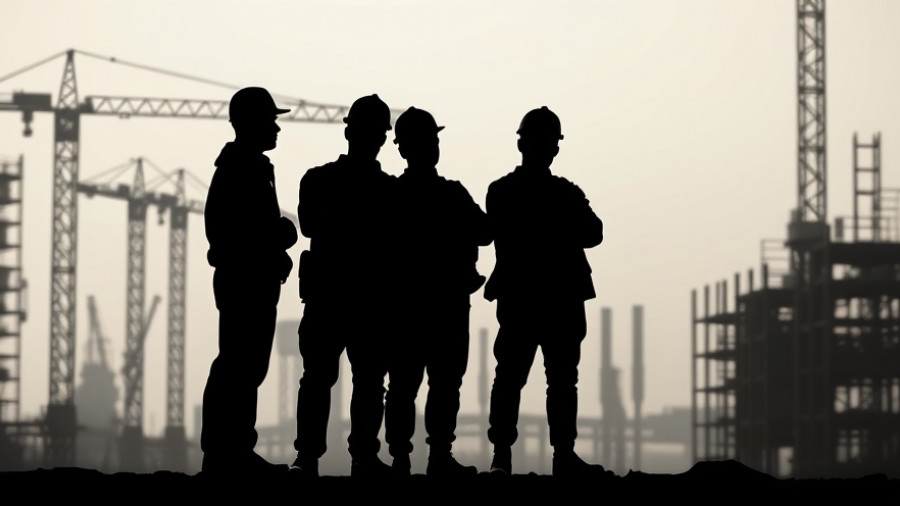
Raising Alarm: The Mental Health Crisis in Construction
Recent findings reveal a staggering reality for the construction industry: nearly two-thirds of workers have faced anxiety or depression over the past year. This alarming statistic, revealed in a survey commissioned by design-build firm Clayco, underscores the pressing need for mental health initiatives within this physically demanding field. With only 44% of respondents having sought mental health services, the industry is at a critical juncture where addressing these issues is not just optional but essential.
The Stigma Around Mental Health
Despite the evident struggles, stigma around mental health remains a significant barrier. The survey highlights that 45% of respondents felt ashamed to discuss their mental health challenges, and 37% admitted to experiencing workplace discrimination due to their mental health concerns. These numbers reflect a culture that still prioritizes silence over support—a culture that executive decision-makers must shift toward fostering a more inclusive environment where mental health can be addressed openly.
Impact of Mental Health on Workforce Productivity
The implications of untreated mental health issues extend beyond individual well-being; they also affect organizational productivity. Executives reported that roughly 21% believed employees seeking mental health support might be sidelined professionally, leading to a lack of opportunities that could further inhibit recovery. Addressing this issue would not only improve individual worker well-being but could also enhance overall operational efficiency and safety on the job site.
Strategies for Improvement
Recognizing the growing concern, Clayco's leadership emphasizes the importance of creating a supportive work environment. Initiatives like the Construction Industry Mental Health Support Pledge could provide companies with valuable resources to combat these mental health challenges through compassionate workplace practices. Tools like Toolbox Talks and QPR training offer simple yet effective methods to involve both workers and management in creating a safer mental health landscape.
The Role of Executives in Mental Wellness
Leaders in the construction sector are also beginning to acknowledge their influence in shaping workplace culture regarding mental health. The Construction Suicide Prevention Partnership, for instance, has gathered significant support, with more than eight leading contractors pledging resources to address mental health issues. By proactively committing to these initiatives, they set an example for the entire industry, championing a paradigm shift necessary for reducing stigma and fostering a supportive work environment.
Looking Ahead: The Future of Mental Health in Construction
As the construction industry continues to evolve, prioritizing mental health will be pivotal. By breaking the silence surrounding mental health challenges and rejecting the stigma, businesses can cultivate a culture of empathy and understanding. Adopting comprehensive mental health strategies not only enhances the well-being of individual employees but also contributes to a more productive and positive workplace, ultimately benefiting the entire sector.
With the effects of mental health being felt widely across the construction sector, organizations must take these revelations seriously and act promptly. Investing in mental health resources and support will yield not only healthier workers but also a more robust, resilient industry capable of overcoming future challenges.
 Add Row
Add Row  Add
Add 




Write A Comment